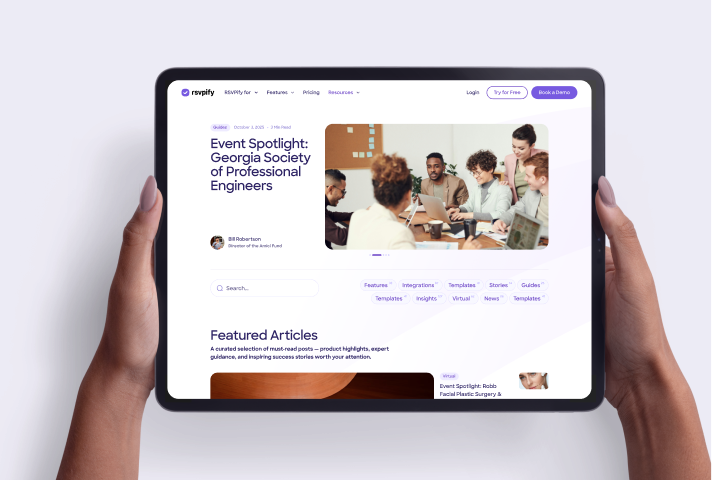Since March 2020, when a wave of major conference and event cancellations served as an early warning of just how much COVID-19 would impact the world, event planners have scrambled to adapt. From the emergence of virtual and hybrid events, to creative vendor ideas, to surprising partnerships, the events industry as a whole fortunately managed to come through the worst of the COVID-19 pandemic banged up, stretched, but still on its feet.
Now, as the third summer since the pandemic began gears up, in-person events have fortunately returned to being the norm. But like other industries, from education to food service, event profs and vendors are struggling with staffing shortages that don't seem likely to resolve anytime soon. Unfortunately, just as the events industry is finding its footing again, these staffing shortages are causing some major headaches and curveballs for event planners.
For both event professionals and folks planning an event in the near future, it's worth knowing what kind of challenges staffing shortages might cause you as you set up your event management software, send out invitations, book vendors, and more. Here are three of the most noticeable examples of how staffing shortages in the event industry are playing a role right now.
So much of event planning is about being able to anticipate - guest list sizes, budgets and expenditures, venue and vendor availability, and so on. Unfortunately, staffing shortages are having a cascading effect on being able to anticipate effectively. For example:
While these delays are often unavoidable for event planners in at least some respect, you can help yourself by structuring your event planning to accommodate them. Be flexible with online RSVP return dates, try to work with vendors who will offer refundable deposits, consider flexible dates for your event in case one doesn't work out, and more. The more you anticipate unexpected delays, the more likely it is that you have a workaround built in to your own planning to lessen the hassle.
As staffing shortages have naturally led to significant raises in employee salaries, benefits, and hourly wages, the associated rise in costs to vendors is being passed along to customers and event planners. Beyond front-line staff like waiters, venue staff, and others who are being priced up to attract candidates for openings, there are other secondary staffing shortage impacts that are also leading to rising costs for event hosts:
This has two impacts for event planners:
Naturally, after two years of cancelled events and virtual experiences, event attendees are naturally excited for the return of many in-person events. However, these attendees are often using the last "normal" event as a frame of reference, which can lead to disappointment if staffing shortages lead to decreases in offerings, services, or event experiences. While you can try to avoid this in event planning by not overstretching your means, the reality is that setting up event attendees for potential headaches or asking for patience due to staffing shortages honestly and in advance can help avoid disgruntled event attendees. Be clear and realistic with your customers and guests ahead of time - you'll find that people are more likely to cut you some slack if they understand the extent of staffing shortages and the limitations they might be causing you as an event planner, event venue, or vendor.
For event profs and vendors who are navigating current staffing shortages and simply trying to make things work from day to day, the stress and frustration can seem daunting. However, one thing that can help anyone managing staff in the event industry is to be proactive about incentivizing and retaining staff. With many workers in many industries making shifts in their careers to jobs that offer greater flexibility, time off, and freedom to relocate, event profs and vendors must work with employees to determine reasonable but competitive staff incentive packages to lessen the impact of staffing shortages that can severely impact the ability to host or properly serve events. While this might involve some significant cost increases in the form of rising wages, better benefits, or adding more staff to cover the same number of hours handled by a single employee in the past, it should be considered a long-term investment. Retaining trained staff can not only help ensure good event experiences for event planners, customers, and attendees alike, but also reduce the constant chaos of trying to hire and train new staff and compete for those bodies with other desperate vendors.
About the Author
Adam Hausman co-founded RSVPify in 2013 and has been passionate about event tech and ticketing software ever since. Also founder of Greenlight Growth Marketing, he holds degrees from Indiana University (BA English/Psychology 2008) and the University of Illinois-Chicago (M.Ed. Secondary Education 2012). He lives in Maine with his wife, 2 kids, and 2 annoying cats.
Get the latest product updates, event planning tips, and industry insights — straight to your inbox.
You can unsubscribe at any time. Your email will only be used to send RSVPify updates and will never be shared.
